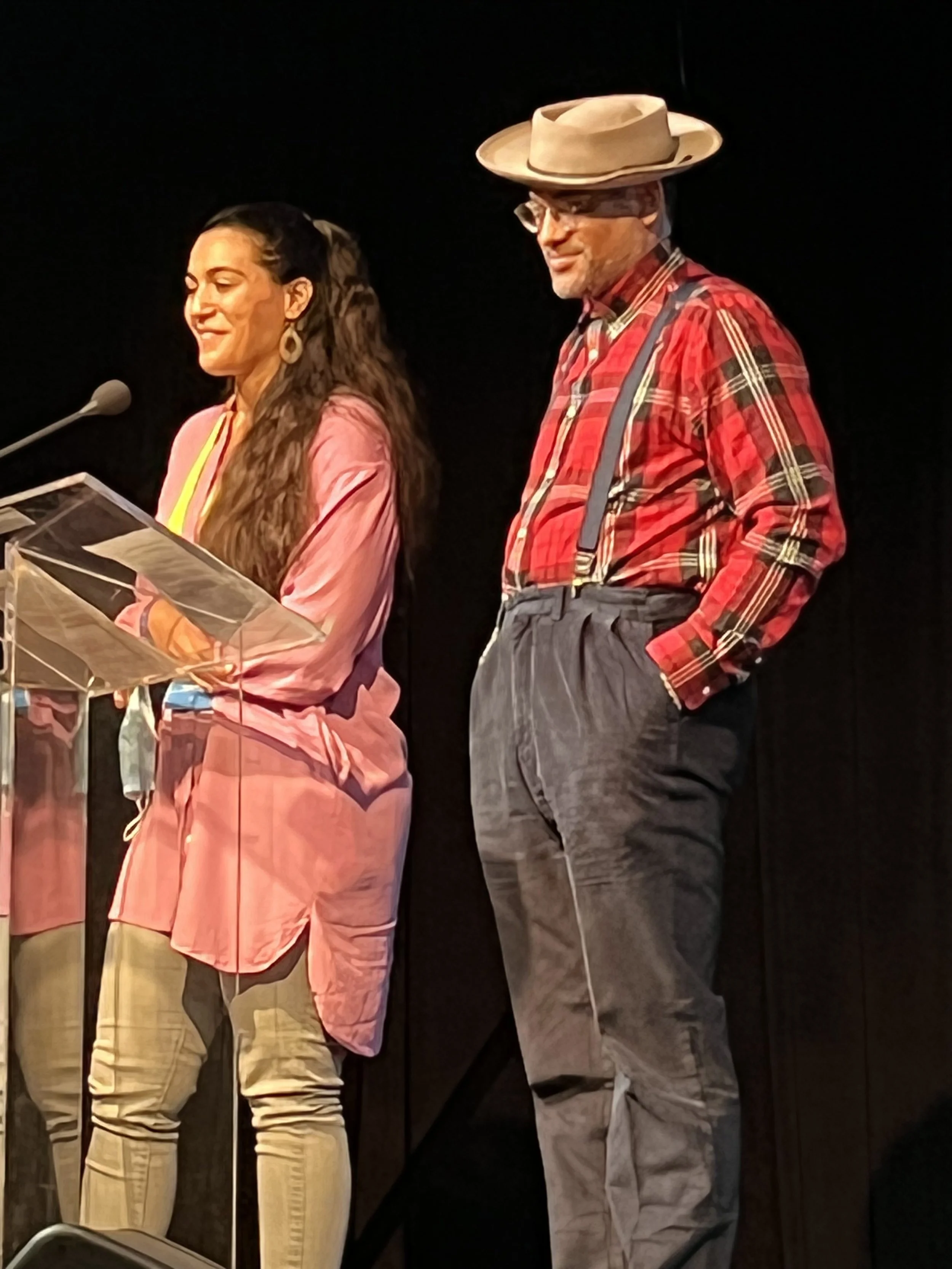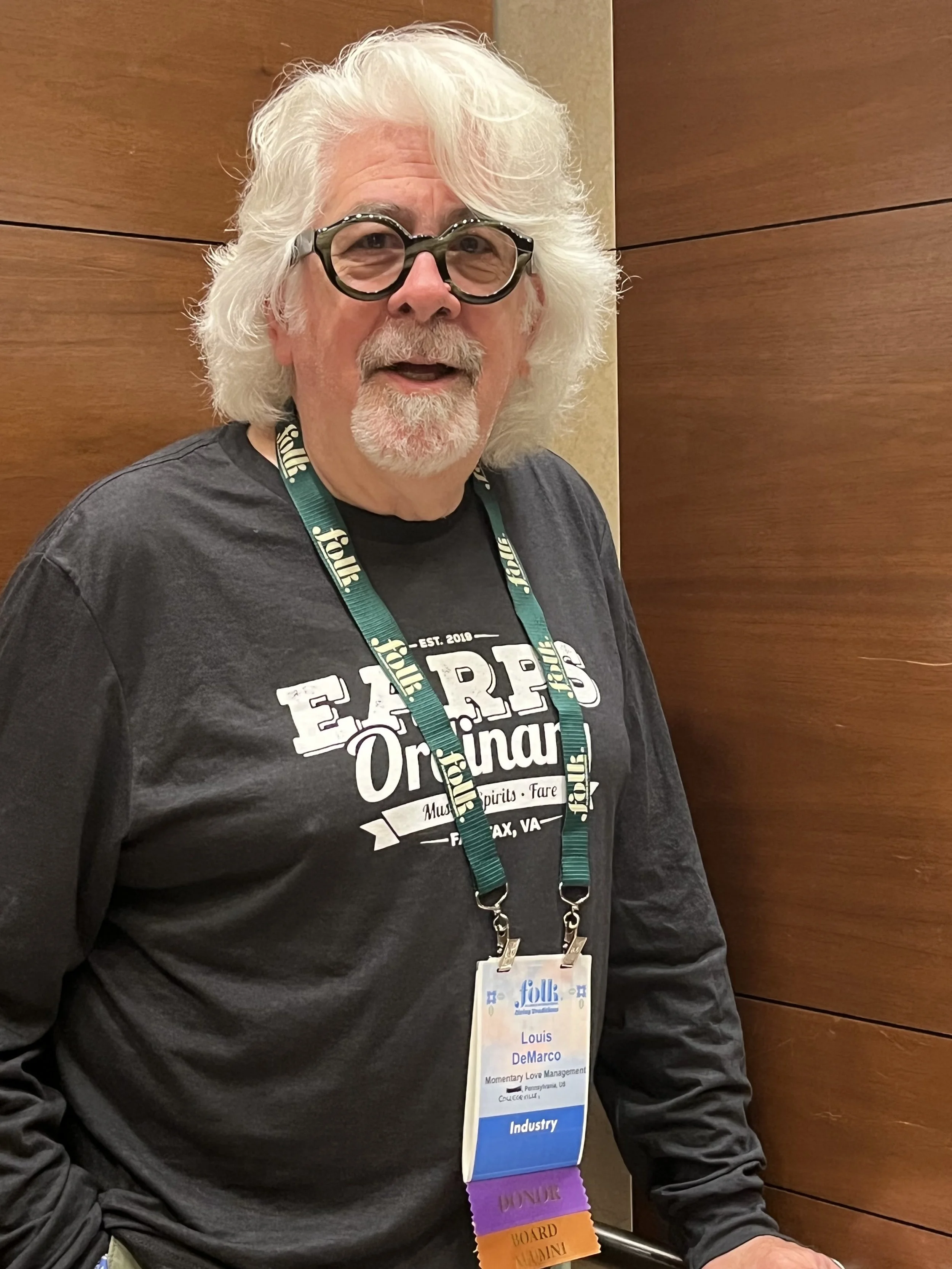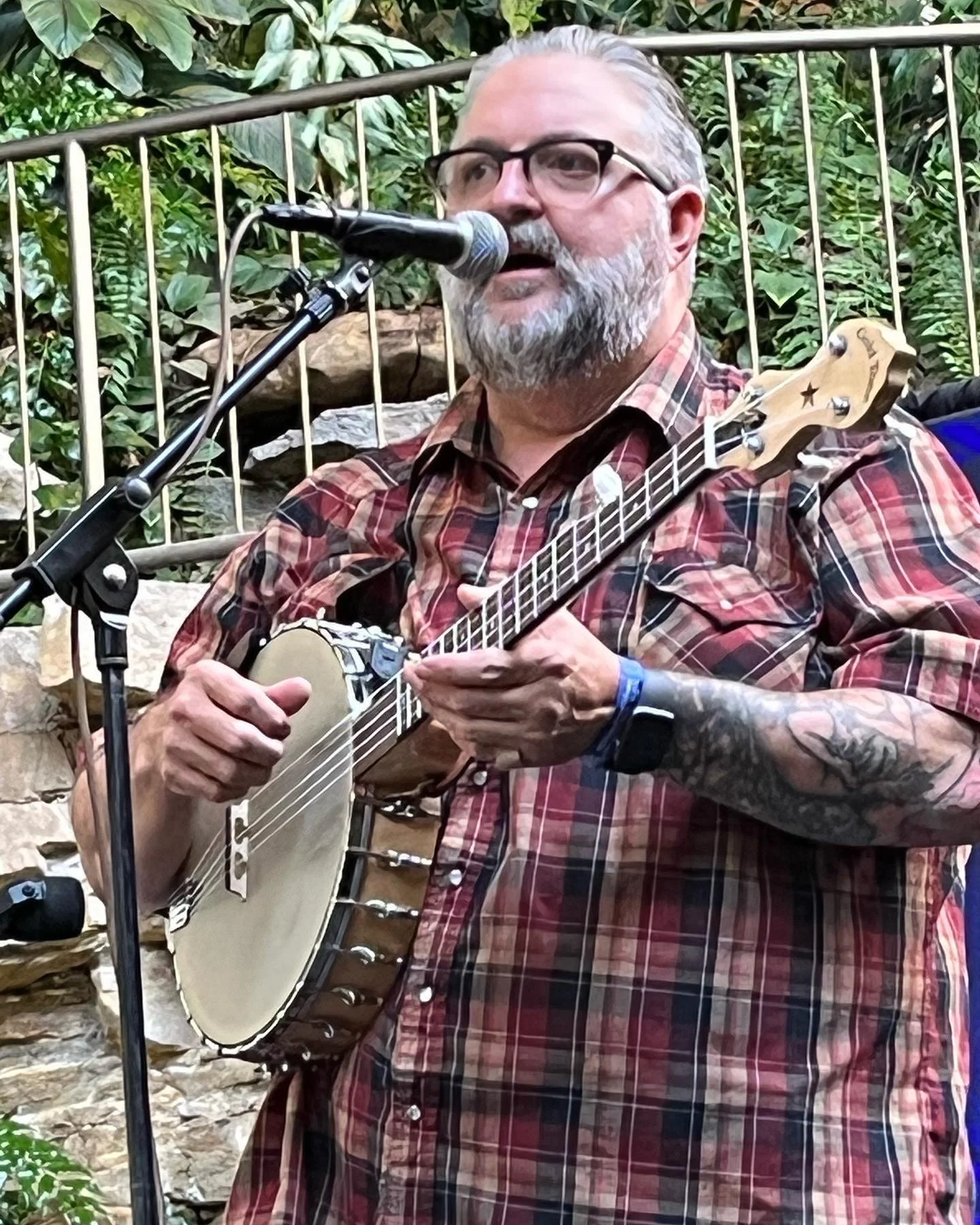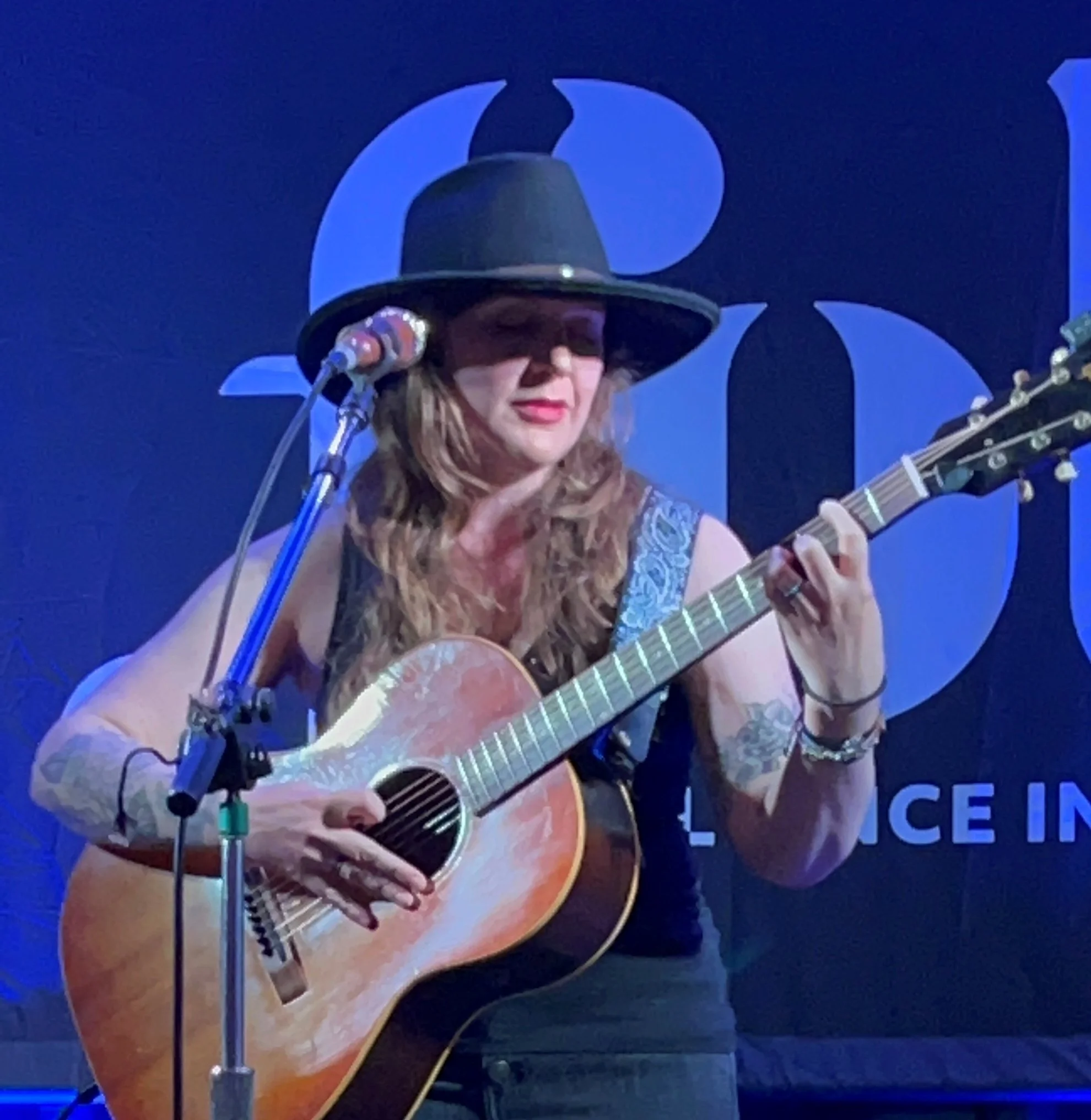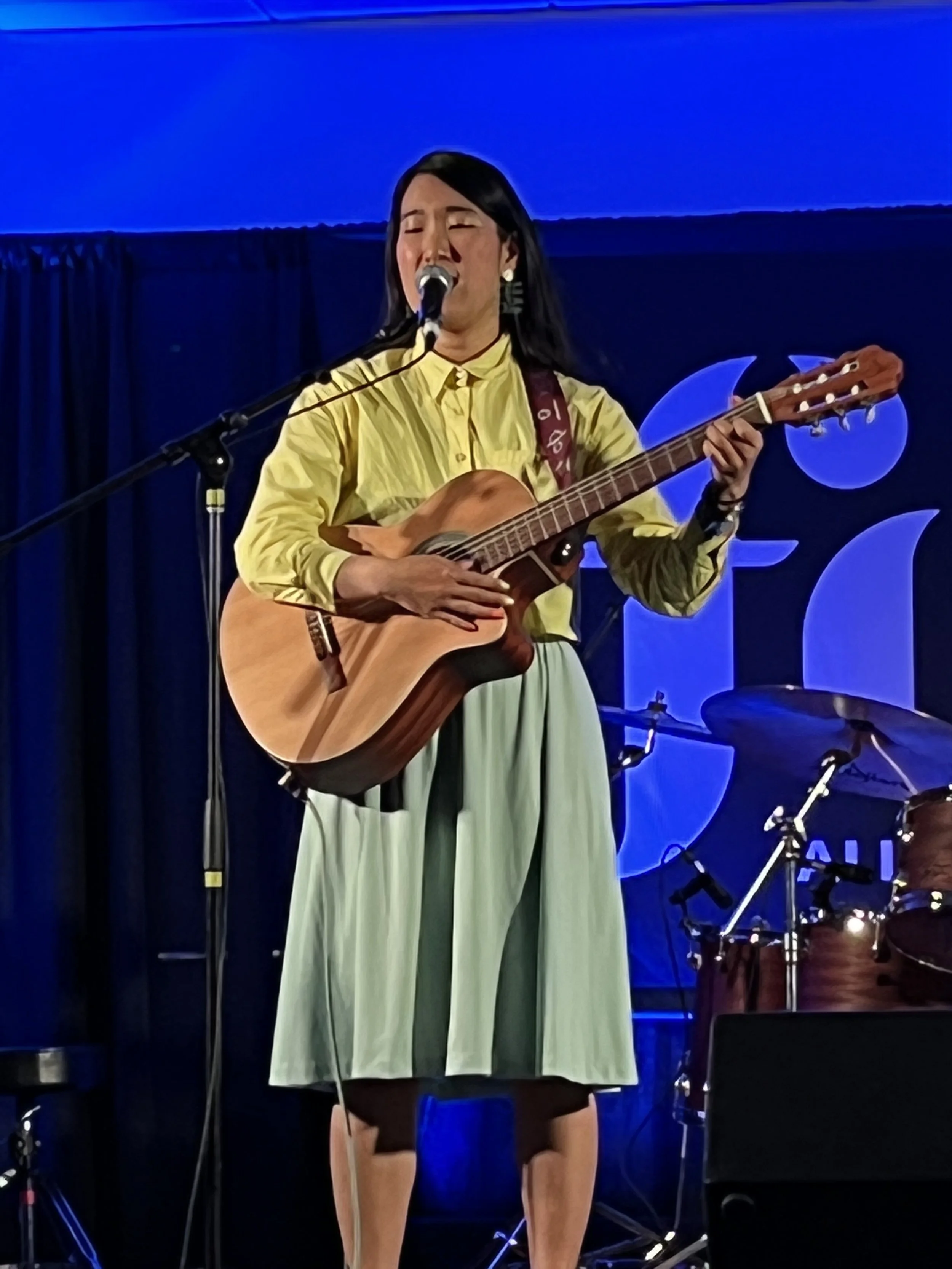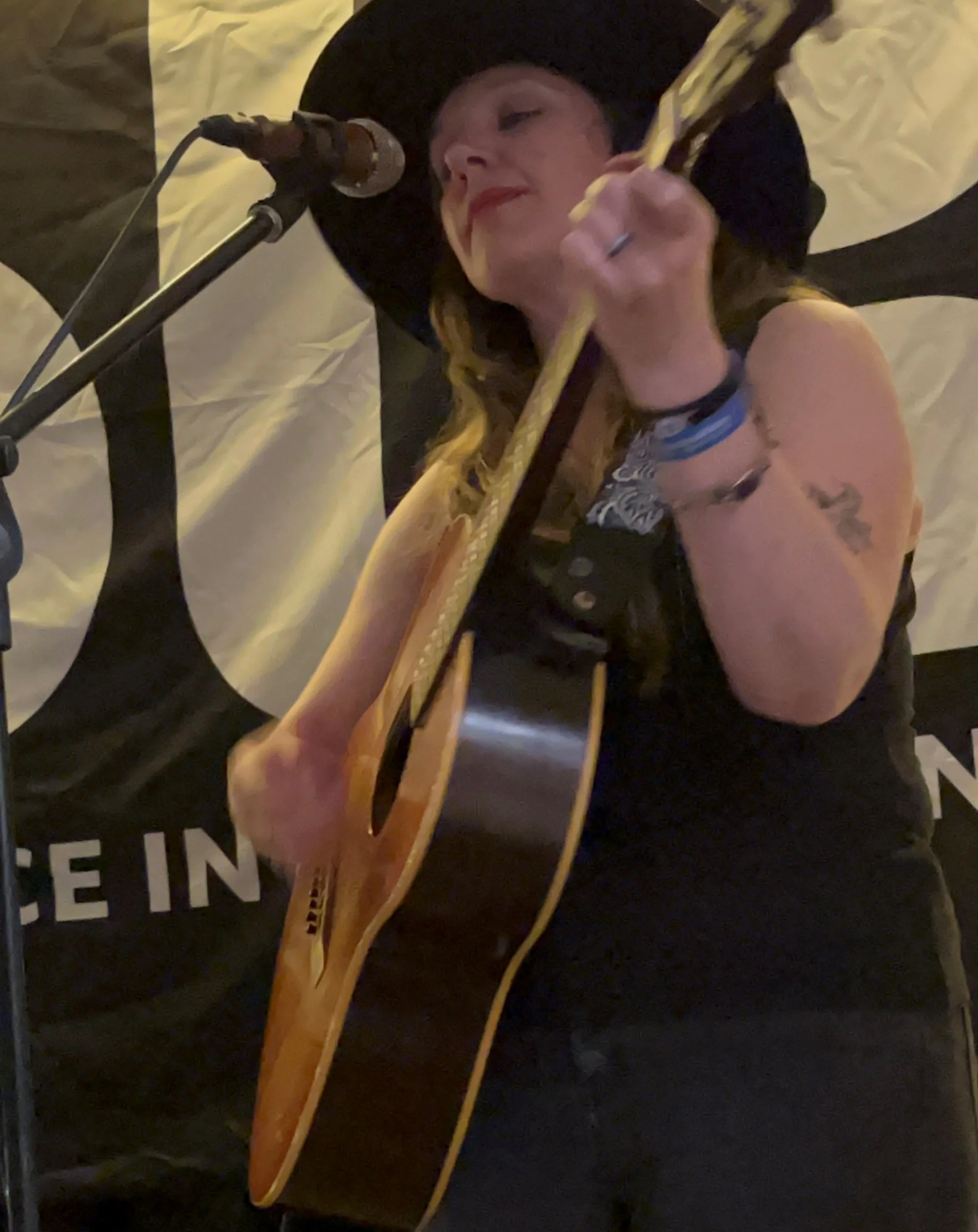Event Review: 2022 Folk Alliance International Conference in Kansas City, Missouri, Day Two
FAI’s first-ever hybrid conference in late May was a wild (and rewarding) ride for this first-timer. This is the second of an immersive four-part series about my experience.
If you haven’t seen the article on day one, you can catch up here. Otherwise, let’s dive in!
Day Two: Building equitable community
In the light of the next morning, I finally met my roommate for real. I’d found Memphis-based fiddler and songwriter Alice Hasen on a Facebook message board, and sharing a hotel room would be way cheaper and more convenient than the Airbnb I’d originally booked, so I took a chance staying with a stranger. It was quickly clear I’d made the right choice. Not only was she a warm, easygoing person, but she’d been to FAI a few times before, so I got the benefit of her experience.
I had to work from our room for the first half of the day, but luckily for me Alice brought the live music to me: She’d connected with Guyanese folk/punk artist Gavin Mendonca, who performs under the name Creole Rock, to back her up on guitar for some of her showcases, and he came to our room to learn her songs.
I blissed out to her atmospheric, impossible-to-categorize instrumental songs while I finished up my work, then ran downstairs to start the day.
The first event on my agenda was the CommUNITY Gathering, a presentation by the FAI’s Cultural Equity Council, co-chaired by acclaimed old-time musician (and newly minted PhD!) Dom Flemons and Karima Daoudi, senior program officer of the East-West Center.
In his opening remarks, Dom explained that the organization was going through an eight-year period of self-examination and change to become more equitable. “FAI has always been in the right—trying to do more and better,” he said, “but there’s always room for growth.”
Karima Daoudi and Dom Flemons. Photo by Carol Roth.
Outgoing FAI Executive Director Aengus Finnan detailed many of their efforts and achievements in creating affinity groups and turning FAI’s intentions into concrete actions, such as financial support for artists during the devastating early days of the pandemic. I left the presentation impressed and inspired. Even better, I’d see over the coming days that this commitment to diversity, equity, inclusion and accessibility was not confined to a single presentation—it permeated nearly every aspect of the conference.
In the elevator on the way back to my room I met a former FAI board member, Louis DeMarco. We chatted about my first FAI experience so far, and I could tell he was genuinely interested in whether I was having a good time. That commitment, even from someone no longer on staff, was something I noticed with every FAI staffer and volunteer I met.
Louis DeMarco. Photo by Carol Roth.
I returned to my room to find Alice and Gavin practicing some more. Then she rehearsed with Rachel Maxann, a Memphis singer-songwriter who was going to accompany Alice in some of her showcases (and vice versa). The two mentioned some exciting gigs they had coming up right after FAI: Alice was backing Rachel opening for Valerie June for part of her tour!
Alice kept checking in with me to make sure I didn’t mind our hotel room turning into a rehearsal space, but I honestly could not have been happier with how things had turned out. It just added to this dreamlike feeling that I was completely immersed in a world of artists and music.
Soon I was back in the main part of the hotel for some official showcases, starting with Mark Rubin (who also goes by Jew of Oklahoma). Mark writes folk music through the lens of Jewish experiences, such as a historical murder ballad about an anti-Semitic mob killing, and music traditions, like playing a klezmer tune on his banjo. It was a striking way to use familiar sounds and styles to express a culture that’s underrepresented in American folk music.
Mark Rubin aka Jew of Oklahoma. Photo by Carol Roth.
I wished I could stay and meet him, but it was a race against time to make it to Sarah King’s official showcase, which would be a little longer than her late-night ones. I enjoyed her even more now that the haze of travel had worn off. I also loved hearing the reactions of people experiencing her for the first time. I overheard her in passing several times after that during the conference, so I think she made a splash, and I couldn’t be happier about that!
Sarah King. Photo by Carol Roth.
I’d been looking forward to seeing Alison Rheaume, a queer Métis artist from Canada, but when I showed up to the venue, someone else was performing. (A COVID exposure had prevented Alison from coming, I later learned.) It was a happy accident though—queer Korean-Canadian artist Janice Jo Lee filled in, and her songs weaving Korean legends into folk music and spoken word—with a healthy dose of funny stage patter—were engaging and enchanting.
Janice Jo Lee. Photo by Carol Roth
Because I’m incorrigible, I took a quick detour from FAI—an adventure within an adventure, if you will—to see one of my favorite Minnesota artists, Jake La Botz, who happened to be opening for another act at a venue I’ve heard about for years, Knuckleheads Saloon. Not only was it a fantastic set (and club), but it was one of the few times I left the self-contained world of the Westin and the adjoining Crown Center mall. The night air felt sweet and fresh in my lungs as I chatted with Jake while waiting for my Lyft. Then it was back to FAI for a quick snack before the start of the late-night showcases!
First up was Fellow Pynins, a duo I’d seen a couple times when they briefly lived in Minneapolis pre-pandemic. (They’ve since returned to Oregon.) We recently interviewed them via Zoom and reviewed their incredible new album, so I was excited to see them live again. Their vocal chemistry is magical, and when they perform you can see why; they sing like they’re in conversation, even facing one another much of the time on stage. It adds a layer of intoxicating romance to their shows.
Fellow Pynins. Photo by Carol Roth
Next I checked out a showcase by fiddle sensation Morgan Toney from We’koqma’q First Nation in Canada. The 22-year-old’s virtuosic playing and singing blended traditional Mi’kmaq songs with Celtic influences for a fiery, toe-tapping set that brought up my energy levels even though it was almost midnight by then.
Morgan Toney. Photo by Carol Roth
Then it was back to Sarah King for another private showcase. I figured if I saw her every time I got, all those short sets would add up to the equivalent of one long show, which I still hope to see from her one of these days!
Sarah King. Photo by Carol Roth.
Everyone seemed to be talking about Willi Carlisle—even a Minneapolis musician who wasn’t attending messaged me to recommend him!—so I caught half of a song-swap showcase between him, expressive Americana singer-songwriter Kate MacLeod, and Fellow Pynins. Willi’s queer-oriented storytelling is unique, but what really sets him apart is a big, captivating voice and brash, charming stage presence. Even though I could only stay for one or two songs each, I could see why he was the talk of the conference! That the other two acts held their own in a song swap with him is testament to their talents as well.
Willi Carlisle, Kate MacLeod and Fellow Pynins. Photos by Carol Roth.
I had to run, though, because I wanted to see my roommate Alice perform some of the songs I’d heard in rehearsal. Sometimes she accompanied herself through live-looping her fiddle; other times Rachel accompanied her on guitar. Alice’s mesmerizing songs weave jazz and folk influences and are often meditations (instrumental or with vocals) on environmental issues.
Rachel Maxann and Alice Hasen. Photos by Carol Roth.
It was exciting to see her hard work pay off in the reactions of the other audience members. Even though I play guitar myself and know the importance of practice, I never truly consider the effort that goes on behind the scenes when I’m watching a professional perform. The conference gave me a new perspective and even greater appreciation of artists!
Want to find out what happened next? Check out my account of Day Three!
Carol Roth is a full-time marketing copywriter and the main music journalist and social media publicist for Adventures in Americana. In addition to studying the guitar and songwriting, Carol’s additional creative side hustle is writing self-proclaimed “trashy” novels under the pseudonym T.A. Berkeley!

